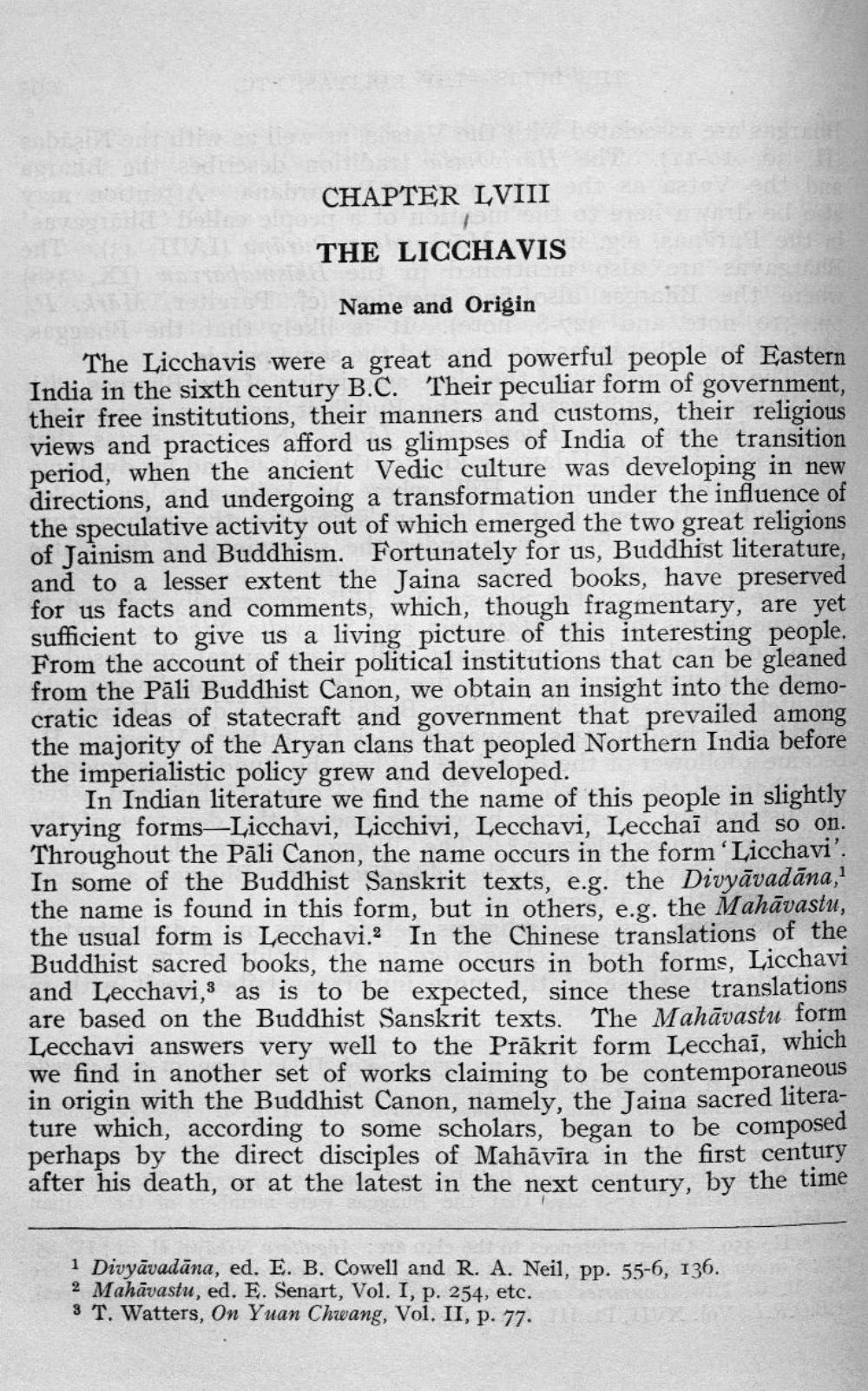________________
CHAPTER LVIII
THE LICCHAVIS
Name and Origin
The Licchavis were a great and powerful people of Eastern India in the sixth century B.C. Their peculiar form of government, their free institutions, their manners and customs, their religious views and practices afford us glimpses of India of the transition period, when the ancient Vedic culture was developing in new directions, and undergoing a transformation under the influence of the speculative activity out of which emerged the two great religions of Jainism and Buddhism. Fortunately for us, Buddhist literature, and to a lesser extent the Jaina sacred books, have preserved for us facts and comments, which, though fragmentary, are yet sufficient to give us a living picture of this interesting people. From the account of their political institutions that can be gleaned from the Pali Buddhist Canon, we obtain an insight into the democratic ideas of statecraft and government that prevailed among the majority of the Aryan clans that peopled Northern India before the imperialistic policy grew and developed.
In Indian literature we find the name of this people in slightly varying forms-Licchavi, Licchivi, Lecchavi, Lecchai and so on. Throughout the Pali Canon, the name occurs in the form 'Licchavi'. In some of the Buddhist Sanskrit texts, e.g. the Divyavadana,1 the name is found in this form, but in others, e.g. the Mahavastu, the usual form is Lecchavi.2 In the Chinese translations of the Buddhist sacred books, the name occurs in both forms, Licchavi and Lecchavi, as is to be expected, since these translations are based on the Buddhist Sanskrit texts. The Mahavastu form Lecchavi answers very well to the Prakrit form Lecchai, which we find in another set of works claiming to be contemporaneous in origin with the Buddhist Canon, namely, the Jaina sacred literature which, according to some scholars, began to be composed perhaps by the direct disciples of Mahavira in the first century after his death, or at the latest in the next century, by the time
312
dis
HE
TVI
1 Divyavadana, ed. E. B. Cowell and R. A. Neil, pp. 55-6, 136.
2 Mahāvastu, ed. E. Senart, Vol. I, p. 254, etc.
3 T. Watters, On Yuan Chwang, Vol. II, p. 77.




